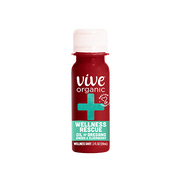Upset stomach? Bad gut? Funky digestion? Tummy troubles? Sensitive stomach? We’ve all had our fair share of digestive discomfort, often dismissing it as just another bad day for our belly.
It's normal to have an occasional upset stomach but dealing with frequent digestive issues shouldn't be something you live with on a regular basis.
In this blog, we dig into all aspects of gut health including the gut microbiome, the signs of a healthy and unhealthy gut, and how you can help improve your gut health.
What is Gut Health?
Gut health refers to the balance and function of your gastrointestinal tract, which plays a crucial role in your overall health and well-being.1
The gut, also known as the gastrointestinal system, is a complex network of organs including the stomach, small intestine, and large intestine, as well as a diverse community of microorganisms known as the gut microbiota. This intricate ecosystem is responsible for digesting food, absorbing nutrients, and supporting various bodily functions.1,2
Maintaining a healthy gut is essential for optimal digestion, nutrient absorption, immune function, and even mental health.2
Maintaining a healthy gut is essential for optimal digestion, nutrient absorption, immune function, and even mental health.
Research shows that an imbalance in the gut microbiota or microbiome, known as dysbiosis, may lead to a variety of health challenges including digestive, autoimmune, and mood conditions.3
Promoting and improving gut health through a balanced diet, stress management, and hydration may support your overall health and well-being.2,4
Your Gut Microbiome and Your Overall Health
The gut microbiome is an active community of trillions of bacteria, fungi, and other microorganisms living in your digestive tract. This complex community of microorganisms has a crucial role in maintaining your overall health.3,4
These tiny inhabitants aid in digestion and nutrient absorption and influence your immune system, metabolism, and possibly even your mental well-being. Understanding and nurturing this complex ecosystem can have profound effects on your health and well-being.3,4
Your gut microbiome is located in your large and small intestines. Your intestinal tract is your largest immune system organ, home to an estimated 80% of your body’s immune-producing cells.5
Your ability to defend against cardiovascular, endocrine, gastrointestinal and mental health conditions, auto-immune disorders, and your response to treatment for these conditions, is affected by the make-up of your gut microbiome.6,7
What Are The Signs Of An Unhealthy Gut?
The signs of an unhealthy or imbalanced gut may include: 4,5,6
- Constipation
- Diarrhea
- Irritable bowel syndrome
- Gas or bloating
- Nausea
- Stomach cramps
- Burping
- Acid reflux or heartburn
- Unexplained weight loss or gain
- Fatigue
- Interrupted sleep
- Food intolerances
- Skin conditions
- Autoimmune conditions
If you are experiencing signs or symptoms such as blood in your stools, persistent diarrhea, consistent bloating and gas, abdominal discomfort, painful defecation, or trouble swallowing, contact your healthcare practitioner right away. Do not ignore these signs and symptoms – they may be indicators of more serious underlying health conditions.
On the flipside, the signs of a healthy and balanced gut may include: 8
-
Consistent and regular bowel movements free from discomfort. There is no defined rule on how many times you should have a bowel movement. For some people, it is normal to poop three times in one single day, while for others, it may be normal to poop three times per week.
Consistent gut transit time. This is the amount of time it takes for food to move through your gastrointestinal tract. Again, everyone is unique and may digest food at different rates. The average transit time through the colon (in someone who is not constipated) is 30 to 40 hours. However, up to 72 hours is still considered normal, although transit time in women may reach up to around 100 hours. (source: https://www.ncbi.nlm.nih.gov/pmc/articles/PMC3271260/)
-
Some bloating and gas. Gas is normal and is actually created by the gut bacteria working away in your small and large intestine to digest your food. Interestingly, a sign of healthy gut bacteria is farting between 10 – 20 times a day.

How To Improve Your Gut Health
The great news is that you can do so much to help improve your gut health, including: 2,4,5,6,9,10,11
-
Managing your stress levels: When you’re stressed, your body releases different hormones; these hormones change your gut microbiome, causing it to respond by releasing different microorganisms triggering gut health challenges.
To help lower your stress levels consider getting outside for a daily walk, relaxing with a book, practicing meditation, prayer, or yoga, journaling, or spending time with friends and family members.
-
Consuming enough fiber: Fiber is instrumental in helping support the digestion and absorption of nutrients, gut transit time, and healthy bowel movements. Specialized prebiotic fiber is believed by researchers to be of extra benefit to your gut microbiome, acting as food for the healthy microorganisms in your microbiome.
While vegetables, fruits, whole grains, beans, legumes, nuts, and seeds are all excellent sources of fiber, prebiotic fiber is not as readily available. Foods including onions, garlic, leeks, beans, lentils, chickpeas, oats, barley, rye, almonds, pistachios, and cashews are all good sources of prebiotic fiber.
-
Eating a wide range of whole, minimally processed, and natural foods: Try to eat foods as close to their natural state as possible as often as you can. This ensures you’re getting all the nutrients your body and gut require for overall health and wellness.
Limiting processed and ultra-processed foods is one of the best things you can do for your health. Recent research suggests consuming ultra-processed food often may disrupt the balance of your gut.
-
Drinking more water: Water helps your gastrointestinal tract do its job – from helping break down and digest food, absorb nutrients, to helping support the transit of healthy bowel movements – water is a gut health superstar.
-
Eating more fermented foods: Research shows the potential of fermented foods in supporting a more balanced and healthier gut microbiome due to the beneficial bacteria they contain. Fermented foods include kimchi, yogurt, kefir, sauerkraut, kombucha, miso, and tempeh.
When it comes to your gut health, remember, it's all about what works best for you. Think of your gut microbiome like your fingerprints – they are unique to you.
What all experts agree on is the benefits of gut health basics - reducing stress, eating a wide variety of whole, unprocessed foods, and taking good care of our mental and physical health. Focus on this approach as you continue to care for your gut health.
Here’s to more days ahead with a happy gut, so you can get out and live a rich and full life.

Resources
- What Doctors Wish Patients Knew About Improving Gut Health (Accessed March 7, 2024) https://www.ama-assn.org/delivering-care/public-health/what-doctors-wish-patients-knew-about-improving-gut-health
- Gut Health (Accessed March 7, 2024) https://www.betterhealth.vic.gov.au/health/healthyliving/gut-health
- Thursby E, Juge N. Introduction To The Human Gut Microbiota. Biochem J. 2017 May 16;474(11):1823-1836. (Accessed March 7, 2024) https://www.ncbi.nlm.nih.gov/pmc/articles/PMC5433529/
- Lessons In Gut Health: Why Balancing Bacteria Matters (Accessed March 7, 2024) https://www.verywellhealth.com/gut-health-8399007
- How Your Gut Microbiome Impacts Your Health (Accessed March 7, 2024) https://health.clevelandclinic.org/gut-microbiome
- Signs of an Unhealthy Gut and What to Do About It (Accessed March 7, 2024) https://www.healthline.com/health/gut-health
- Study Uncovers How the Gut’s Microbiome Boosts Immune System Development (Accessed March 7, 2024) https://www.utoronto.ca/news/study-uncovers-how-gut-s-microbiome-boosts-immune-development
- 5 Signs of a Healthy Gut (Accessed March 7, 2024) https://zoe.com/post/5-healthy-gut-signs
- Madison A, Kiecolt-Glaser JK. Stress, Depression, Diet, and the Gut Microbiota: Human-Bacteria Interactions at the Core of Psychoneuroimmunology and Nutrition. Curr Opin Behav Sci. 2019 Aug;28:105-110. (Accessed March 8, 2024) https://www.ncbi.nlm.nih.gov/pmc/articles/PMC7213601/
- Whelan, K., Bancil, A.S., Lindsay, J.O. et al. Ultra-Processed Foods and Food Additives in Gut Health and Disease. Nat Rev Gastroenterol Hepatol (2024). (Accessed March 8, 2024) https://www.nature.com/articles/s41575-024-00893-5
- Lane M M, Gamage E, Du S, Ashtree D N, McGuinness A J, Gauci S et al. Ultra-Processed Food Exposure and Adverse Health Outcomes: Umbrella Review of Epidemiological Meta-Analyses. BMJ 2024; 384 :e077310 (Accessed March 8, 2024) https://www.bmj.com/content/384/bmj-2023-077310













